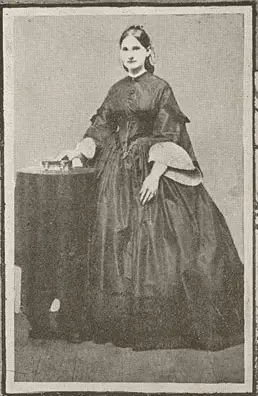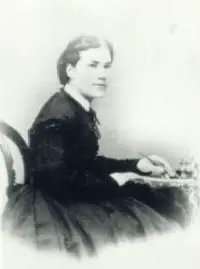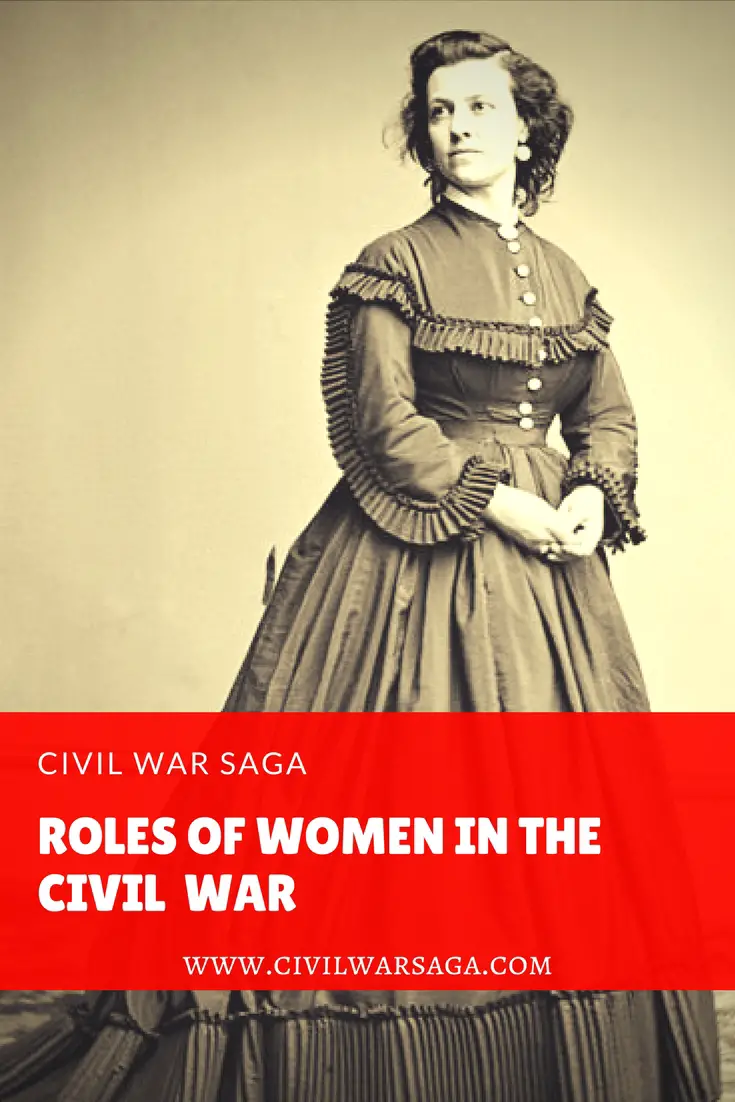Women played many roles in the Civil War. They did not sit idly by waiting for the men in their lives to come home from the battlefield.
Many women supported the war effort as nurses and aides, while others took a more upfront approach and secretly enlisted in the army or served as spies and smugglers.
Whatever their duties were, these new jobs redefined their traditional roles as housewives and mothers and made them an important part of the war effort.
Women Spies:
Although the exact number is unknown, it is speculated that hundreds of women served as spies for the Confederate and Union armies in the Civil War.
Women spies usually gathered valuable military information by flirting with male soldiers at parties, dinners or other social events.
These women also smuggled supplies, ammunition and medicine across enemy lines by hiding them underneath their large hoop skirts.
One Confederate spy, Emeline Pigott from North Carolina, gathered military information by entertaining Union soldiers at dinner parties in her home.
Pigott then passed along this information to the Confederate army by leaving messages in secret hiding spots or by crossing enemy lines and hand-delivering them, according to the National Women’s History Museum website. Like many spies, the Union army quickly caught onto Pigott and she was arrested and sent to jail.
Women Nurses:
Between 2,000 to 5,000 women volunteered as nurses during the Civil War. According to the book Women in the Civil War, so many women eagerly volunteered for the job, they earned a nickname from the press:
“The press soon dubbed them the ‘Florence Nightingales’ of the Union or the Confederacy, and one editor, impressed by the number rushing into hospitals, proclaimed, ‘All our Women are Florence Nightingales.’ This unexpected development was significant not only because of the numbers involved but also because it represented a radical departure from American tradition.”
Nursing was a gruesome job that provided an up close look at the horrific casualties of the war.
Civil War nurses cleaned and bandaged wounds, fed soldiers, dispensed medication and assisted surgeons during operations and medical procedures like amputations.
One of the most famous nurses of the Civil War era was Clara Barton. Barton, who worked as a clerk in the U.S. patent office when the Civil War broke out, began to show up at local battlefields armed with medical supplies, which she used to nurse sick and wounded soldiers, eventually earning her the nickname “Angel of the Battlefield.” Years later in 1881, this experience inspired Barton to found the American Red Cross.
Women War Relief Workers:
Many women participated in war relief efforts, such as sewing circles where they made clothing for soldiers or they held charity drives where they gathered food, medical supplies and bedding for local military encampments and hospitals.
Women also raised money through fundraisers and charity events such as the Sanitary Fair in Chicago in 1863. These fairs were held all around the country and raised funds for much needed medical supplies and equipment by auctioning off donated items.
Women Soldiers:
Even though women were forbidden to join the military at the time, over 400 women served as soldiers in the Civil War. A handful of these women even fought in many famous Civil War battles such as Gettysburg and Antietam.
In order to enlist, these women disguised themselves as men and adopted masculine names. During an interview with NPR, the author of They Fought Like Demons: Women Soldiers in the Civil War, Deanne Blanton, stated that secret soldiers often shared a similar background:
“‘The women who went to war,’ she says, ‘who disguised themselves as men and carried a gun, were overwhelmingly working-class women, immigrant women, poor women, urban women and yeoman farm girls.'”
Their disguises were so convincing that the women were often only discovered by accident while being treated for injuries or illnesses.

“Our Women in the War”, Wood Engraving on Paper by Winslow Homer, Published in Harper’s Weekly in Sept 1864
One female soldier, Mary Owens, served under the alias John Evans for 18 months before her identity was discovered during treatment for a wound on her arm. Upon discovery, Owens was promptly sent back home to Pennsylvania.
After the Civil War ended in 1865, many of the women went back to their traditional roles in society and became wives and mothers.
Some of these women later shared their wartime stories with others by publishing their war diaries and memoirs, while others kept their stories to themselves as they tried to readjust to life as a woman in post-Civil War America.
Sources:
Paul, Linda. “In Civil War, Woman Fought for Freedom Like a Man.” NPR, 24 Mar. 2009, www.npr.org/templates/story/story.php?storyId=104452266
Winkler, H. Donald. Stealing Secrets: How A Few Daring Women Deceived Generals, Impacted Battles, And Altered the Course of the Civil War. Cumberland House, 2010.
Blanton, Dee Ann and Lauren Cook White. They Fought Like Demons: Women Soldiers In The Civil War. LSU Press, 2002.
Massey, Mary Elizabeth. Women In The Civil War. University of Nebraska Press, 1994.





This is very interesting, and to be honest if they needed kids again in a battle I would join.
i would 2
These comments are so heartwarming to read. Kids are so much braver than people give them credit for.
i would 3
you mean 1 would2
Can you give me more information
Yeah!
what are you saying
i really liked this
I like what you wrote about the women during the war but what I really want to know is what role women with children have during the war? please answer back just email me. it would really mean a lot to me for my social studies class.
they took care of the children and cooked them delicious food
I like the information in the article. Thank you
This was very helpful for my research essay on ” Women in the Civil War”. So thanks so much.
Who else is at golden valley middle school?
Me im in 8th grade golden valley middle school
You really shouldn’t tell people what school you go to on random sites.
Where is that is it in Reston that’s where i live
Who is the Author of this site? Because I need his name for a school assignment, If you will allow me I would like to put your article in my paper. All I need is your name if you don’t mind.
Hi Morgan, I am the author and publisher of this site. You can use my article in your paper. I don’t really know what you mean by a quote. Do you mean you want to quote the article, because that is fine be me.
Thanks for making this article it really helped me with my homework to be honest I just needed to use this website and another one thanks soo much
my name is rodger
Also can I have a quote on this I also need that?
this info is awesome thanks it helped on my report on women’s contributions in the Civil War
YESSSSS GIRL!!!!
this was helpful:)
this was very helpful thank you so much 🙂
your welcome!!!!!
thank for this info.
i would certainly join
This is a great article but i do wish there was more info on what it was like to take care of the home when the men were gone in the civil war
THis article is GREAAATTTTTTTT!!!!!! it helped me with my final project
thx u verry helpfull
This website is so helpful especially since there is a limited number of sources with this genre of literature.
Thank you for this article it helped me so much.
Hello Rebecca Beatrice Brooks, My name is Shelby and I am currently working on a paper, and one of my provided topics were “Women’s roles in the Civil War” and I came across your artical, and when I reached the end, I didn’t want to stop reading. This artical you wrote was so informational and I just had to say thank you for publishing it! I have learned so much already and I really appreciate you for helping me through this artical, and I have to agree with the girls who commented in 2015-16, if another war broke out, I would leave my family and serve for this country. Thank you so much again!!
Thanks. This helped me with my NHD
I like dis article
i would 2
Mary Ann Wright is a distant cousin of mine. I am happy that her contributions in the civil war were not
overlooked. We would love to locate a picture of her. I live near her cenotaph and have pictures of that.
To date, we have been unable to obtain a photo of her. I have a book I purchased about Camp Chase where
she was a POW but there aren’t any photos of the prisoners. The best description I have found is she was
tall, slender – about 5’9″, with brown hair. If anyone knows where I can find a picture, please let me know.
– Ava Kitts